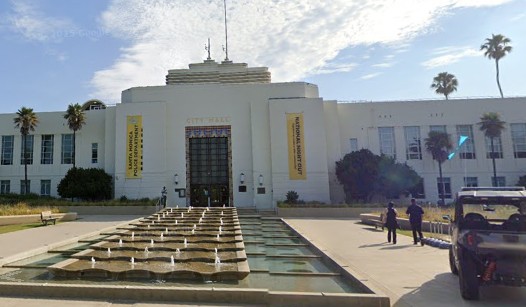The plan, developed by the city’s DEI team over the past year, acknowledges generational and institutional racism’s lasting impacts and commits to advancing racial equity
The Santa Monica City Council unanimously approved the city’s first Citywide Equity Plan on Tuesday, August 12, establishing a framework to address systemic disparities and ensure equitable access to opportunities, resources, and services for all residents, regardless of race, gender, ability, or background.
The plan, developed by the city’s Diversity, Equity, and Inclusion (DEI) team over the past year, acknowledges generational and institutional racism’s lasting impacts and commits to advancing racial equity so differences in life outcomes cannot be predicted by race, class, gender, disability, or other identities. It emphasizes identifying and rectifying policies perpetuating discrimination while fostering an inclusive environment where disenfranchised communities, particularly Communities of Color, can thrive in health, economic vitality, and connectedness.
Rooted in extensive community input, the DEI team—formed in 2022—conducted a seven-month engagement process starting with a September 2023 panel on strategic allyship. This included over 60 community-led listening sessions in diverse settings like homes, parks, and beaches, with stipends offered to broaden participation. Voices from African American, Latino (in English and Spanish), Ethiopian, Jewish, LGBTQ+, disabled, Muslim, senior, youth, and parent groups shaped the priorities, highlighting underrepresentation in leadership, cultural incompetence, economic barriers, housing affordability, and rising hate crimes.
Santa Monica’s demographics underscore the need: U.S. Census Bureau 2023 estimates show 66.9% White, 16.4% Hispanic or Latino, 9.8% Asian, 4.9% Black or African American, and 13.2% multiracial residents, with 23% foreign-born. The plan details historical harms to communities like the Tongva Indigenous peoples through colonization, Black residents via redlining and displacement from the Belmar Triangle, Japanese Americans during WWII incarceration, and Latinos in the Pico neighborhood from urban renewal. It also addresses ongoing challenges for Jewish residents facing antisemitism, LGBTQ+ individuals lacking safe spaces, and seniors dealing with isolation.
The plan outlines five key strategies with specific goals and focus areas:
- Building a Deeper Understanding of Equity: Expand historical knowledge through preservation, art, and storytelling; implement reparations; honor underrepresented contributions.
- Transforming City Operations for Equity: Measure progress on demographic impacts; allocate resources to dismantle barriers; increase diverse representation on boards and commissions.
- Expanding Community Engagement and Access: Build relationships with marginalized groups; reimagine engagement; improve understanding of services and budget; support cultural celebrations.
- Opening Doors to Opportunity: Develop group-specific strategies; expand affordable housing; integrate equity into major initiatives for underserved groups.
- Restorative Justice and Repairing Historical Harms: Confront past harms via truth-telling and restorative action; deepen trust through inclusive engagement.
Foundational commitments include reciting a Tongva land acknowledgment at council meetings, restructuring procurement for diverse contracts, translating agendas into Spanish, offering implicit bias training for commissioners, and partnering for equity dialogues and history tours.
The council also greenlit a community equity grant program, funded initially with $32,496 from the We Are Santa Monica Fund, to support initiatives like college expos for underrepresented students, where a recent event awarded $1.67 million in scholarships to 400 attendees.
Mayor Lana Negrete described the plan as essential, stating, “Santa Monica is a place for everyone, and this plan ensures we advance equity for all.” Despite budget challenges, most actions use existing resources, with the DEI team pursuing grants for reparations, immigrant support, and trans rights programs.












